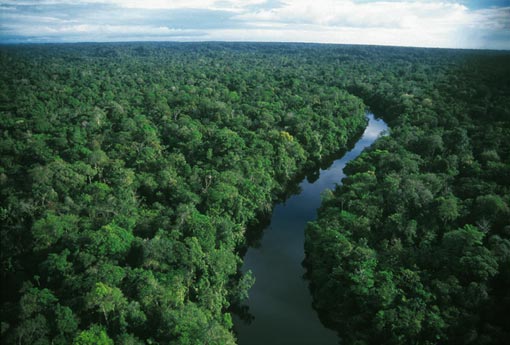Spurred by the growing urgency of catastrophic environmental threats to the Amazon, a group of 150 renowned scientists from eight Amazonian countries, French Guiana and global partners on Thursday, July 23, 2020 launched a scientific initiative that is tasked with delivering the first scientific assessment of the state of the Amazon Basin.

Their recommendations will suggest a blueprint for policy making in a vulnerable region whose leaders have promised to save the world’s largest and most biodiverse rainforest.
The Science Panel for the Amazon will produce what is believed will be the first scientific review to cover the entire Amazon basin and its biomes — to be released in 2021.
Sponsored by the United Nations Sustainable Development Solutions Network, the launch of the Science Panel was attended by a group of strategic advisors, including Juan Manuel Santos, the former President of Colombia, and other political leaders; cultural icons like famed photographer Sebastiäo Salgado, and José Gregorio Díaz Mirabal, elected leader of the Indigenous Peoples of the Amazon.
“Our message to political leaders is that there is no time to waste,” said Carlos Nobre, Co-Chair of the Science Panel for the Amazon.
He added: “The current development model is fueling deforestation and biodiversity loss, leading to devastating and irreversible change. If the Amazon is to survive, we must show how it can be transformed to generate economic and environmental benefits that would be the result of collaborations between scientists, Indigenous knowledge holders and their leaders, and governments.”
The pace of deforestation in the Amazon, coupled with last year’s devastating forest fires, has pushed the world’s largest rainforest close to a tipping point, adding urgency to the motives that led the leaders of Colombia, Bolivia, Ecuador, Peru, Guyana, Suriname and Brazil to sign the Leticia Pact last September in the Colombian city of Leticia.
The agreement commits the governments of the seven nations to protect the Amazon and its biodiverse treasures, to respect the rights of the region’s traditional peoples and to explore innovative ways to sustainably develop the region, while keeping the forests standing.
“The conservation of the Amazon is critical not only for the survival of the 35 million people and the thousands of species who live there, but for the planet,” said Santos, Nobel Peace Prize 2016 and former President of Colombia. “Only science and the unique knowledge of indigenous communities can save our rainforest. Because, let’s remember, this pandemic is nothing compared to the extinction level crisis that a loss of the Amazon would suppose.”
To inform political leaders in implementing the Leticia Pact, Nobre, Encalada and his colleagues on the scientific panel are developing a uniform, coherent plan for the future of the Amazon that will be based on a review of peer-reviewed research and produce policy relevant recommendations to conserve and advance sustainable development of the world’ largest rainforest.
“The massive wildfires that revealed to the world an Amazon in grave danger also uncovered a high level of concern globally for the peoples of the Amazon and the health of the rainforest,” said Jeffrey Sachs, University Professor at Columbia University and Director of the UN Sustainable Development Solutions Network.
“Every lawful and ethical sector — whether public or private — will benefit from acting on our report. We intend to provide a means for governments, investors and companies to respond to growing expressions of solidarity with the Amazon and the Indigenous communities who live in it and protect it.”
Covering eight countries, and a territory, and harbouring more than a tenth of all species on Earth, the ecosystem is threatened by deforestation, fires, mining, oil and gas development, large dams for hydroelectric generation, and illegal invasions.
In July 2019, deforestation and fires caused the loss of a forested area the size of Luxemburg. In July 2020, despite the prohibition announced by the government of Brazil, the burning season has reportedly begun again.
